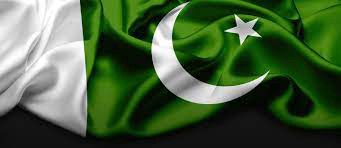
The history of Pakistan is a complex and rich tapestry of political, social, and cultural developments. It can be broadly divided into several key periods:
1. Ancient Civilizations:
The history of the region now known as Pakistan dates back thousands of years. It was home to ancient civilizations, including the Indus Valley Civilization, one of the world's earliest urban centers, flourishing around 2500 BCE.
2. Vedic Period:
The region played a significant role in the Vedic period of ancient India, with various Aryan kingdoms and empires established in the area.
3. Maurya and Gupta Empires:
In the 4th century BCE, the Maurya Empire, followed by the Gupta Empire, exerted their influence over parts of present-day Pakistan.
4. Islamic Conquest and Rule:
In the 7th century CE, Islamic forces led by Muhammad bin Qasim conquered Sindh, marking the introduction of Islam to the region. Over the centuries, various Islamic dynasties and empires, such as the Ghaznavi, Ghurids, and Mughals, ruled different parts of present-day Pakistan.
5. British Colonial Rule:
The British East India Company gradually extended its control over the Indian subcontinent, including what is now Pakistan, during the 18th and 19th centuries. This period witnessed the subjugation of the local population and the introduction of British administrative structures.
6. Struggle for Independence:
The 20th century saw the rise of the Indian independence movement against British colonial rule. Leaders like Quaid-e-Azam Muhammad Ali Jinnah played a pivotal role in demanding a separate homeland for Muslims.
7. Partition and Independence (1947):
In 1947, British India was divided into two independent nations, India and Pakistan, based on religious lines. Pakistan was created as a separate homeland for Muslims. It was partitioned into two geographically and culturally distinct regions, West Pakistan (present-day Pakistan) and East Pakistan (present-day Bangladesh).
8. Early Years of Pakistan:
Pakistan faced numerous challenges in its early years, including the massive influx of refugees, economic hardships, and political instability. The first few decades saw a struggle to establish democratic governance.
9. Wars and Conflicts:
Pakistan has been involved in several wars and conflicts with India, most notably in 1947-48, 1965, and 1971 (resulting in the creation of Bangladesh). The region of Jammu and Kashmir remains a contentious issue.
10. Political Shifts: - Pakistan has experienced periods of military rule interspersed with civilian governments. Notable leaders in its history include Zulfikar Ali Bhutto and Benazir Bhutto, both of whom served as Prime Ministers.
11. Contemporary Pakistan: - In recent decades, Pakistan has faced challenges related to terrorism, economic development, and governance. The country remains a significant player in regional and international affairs.
12. Economic and Social Developments: - Pakistan has made progress in various fields, including education, healthcare, and infrastructure development, while also grappling with issues like poverty, inequality, and political instability.
The history of Pakistan is marked by a complex blend of ancient civilizations, colonialism, independence struggles, and a continuing journey towards political stability, economic growth, and societal progress. It remains a nation with a rich cultural heritage and a diverse population.
0 comments
Be the first to comment!
This post is waiting for your feedback.
Share your thoughts and join the conversation.
